Strawberry Production
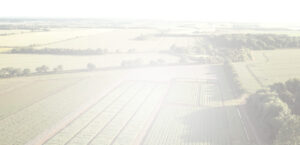
Hybrid Vertical Growing
2:59
Always British. All year round.
We’re redefining British strawberries. Through the use of cutting-edge technology and sustainable practices, we produce premium fruit all year round – so you can enjoy the taste of summer outside of the traditional growing season.
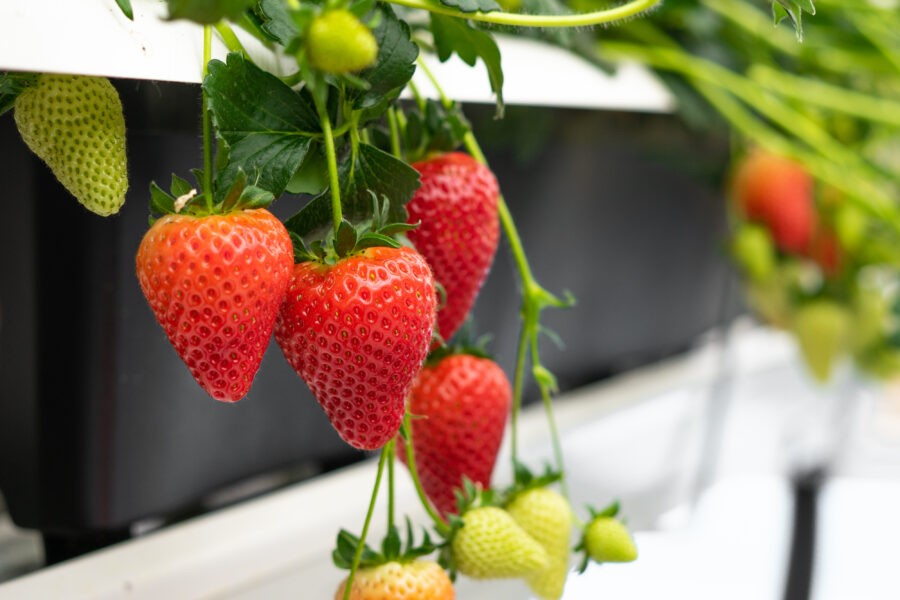
Fresh. Juicy. Sweet. Intense.
Our strawberries are award-winning, picking up gold in the Great British Food Awards 2025.
Our customers love them too. You don’t have to take our word for it – Ocado shoppers rate their flavour and colour.
Pick up a punnet of Dyson Farming branded strawberries in Ocado, Harrods and Lincolnshire farm shops. They are also available in Sainsbury’s Taste the Difference range, M&S Red Diamond and Co-op.
Award-winning technology
A collaborative effort with Dyson Technology engineers has allowed us to trial vertical growing in the glasshouse. Right at home in our research area, the Hybrid Vertical Growing System (HVGS) delivers 2.5x the growing space in the same footprint, revolutionising UK strawberry farming. Each wheel hosts ten rows and, by slowly rotating, each plant has access to sunlight at periods throughout the day, supplemented by LED lights – perfect for growing out of season strawberries with exceptional quality.
HVGS was instrumental in helping us secure the title of Technology Champions at the 2025 FPC Fresh Awards.
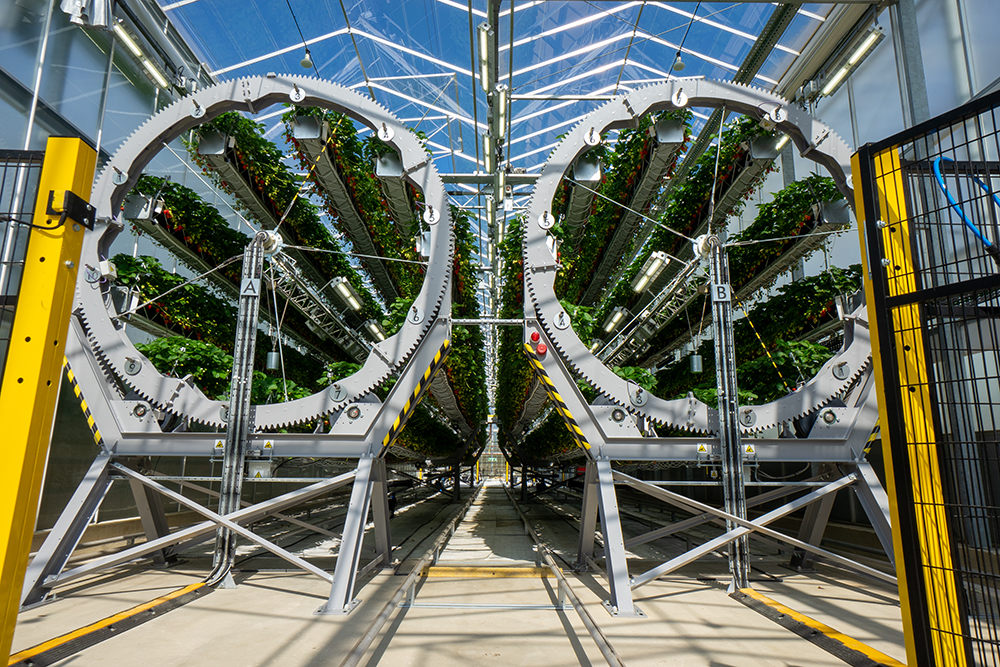
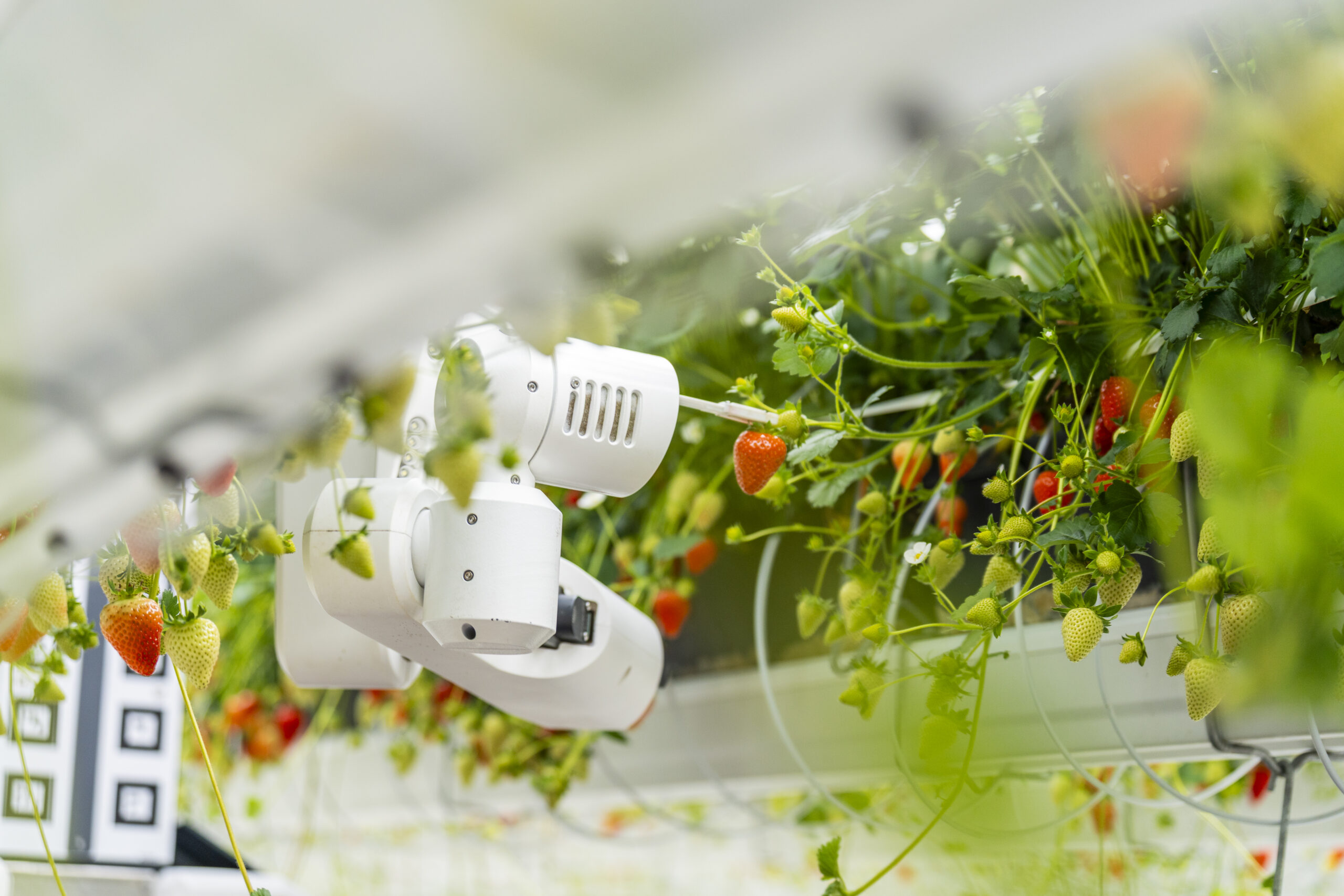
AI-powered British strawberries
Innovation is woven into every part of the glasshouse. Utilising AI-powered decision support software, smart sensors, and robotic harvesters, we can optimise growing conditions and improve efficiency.
UV and nanobubble treatments reduce chemical use, while vertical farming systems increase our yield using the same space. LED lights simulate sunlight on darker days, working alongside climate-control and supplementary CO₂ dosing systems to grow premium out of season strawberries. AI forecasting and precision farming ensures our strawberries are picked at peak ripeness and quality—ready to enjoy, even in the colder months.
British strawberries: 100% of your daily vitamin C
Did you know strawberries offer a rich source of vitamin C and antioxidants?
In fact, some varieties provide 100% of our recommended daily allowance (RDA) of vitamin C in just one serving. Their role has been credited with supporting immune function and reducing oxidative stress, making them a valuable addition to a balanced diet. Dyson Farming Research lead variety trials in the glasshouse to help us choose the most nutritious fruit to grow.
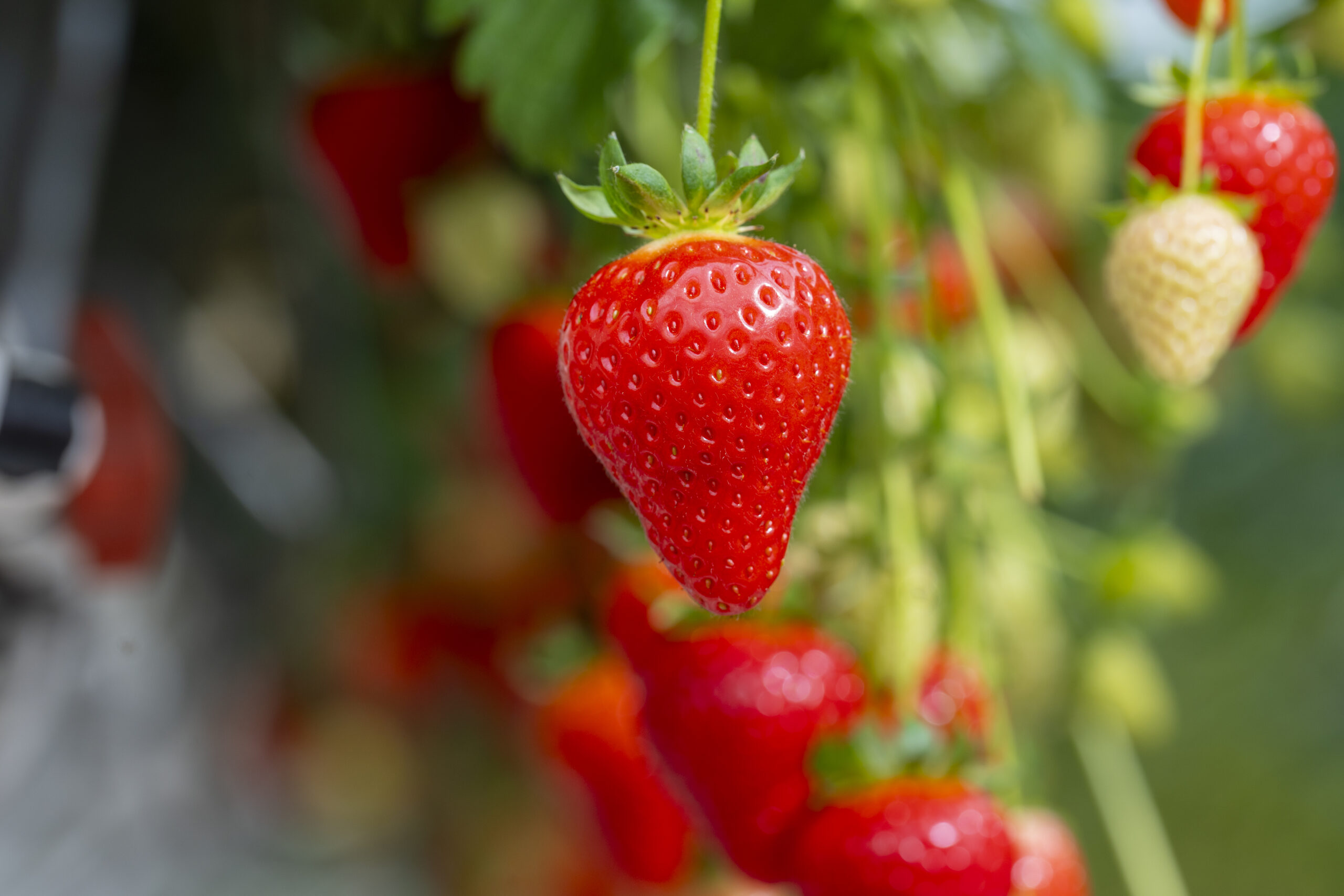
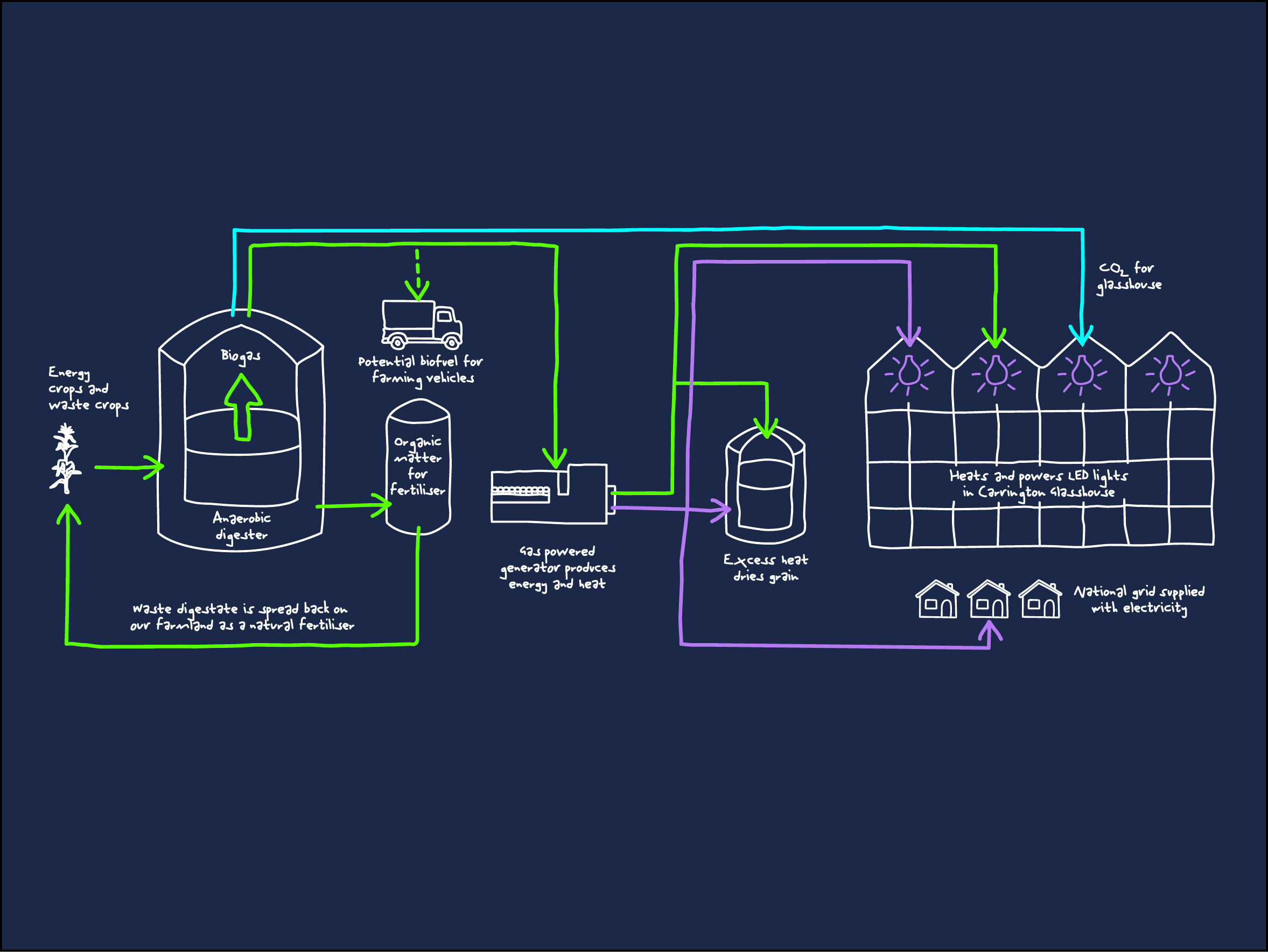
A circular farming system
Our anaerobic digestion (AD) plant, which is right next door, transforms energy crops, grown on the farm, and waste from the glasshouse into energy. This is delivered to the glasshouse as electricity to power LED lights and heat – key for growing strawberries.
Waste from the AD in the form of digestate is used as fertiliser on our fields, creating a circular system. This closed-loop helps us reduce our carbon footprint while creating the perfect environment for our crops to thrive.
“Sustainable food production, food security and the environment are vital to the nation’s health and the nation’s economy; there is a real opportunity for agriculture to drive a revolution in technology and vice versa. Efficient, high-technology agriculture holds many of the keys to our future. Dyson Farming strives to be at the forefront of this.”
Sir James Dyson, Founder
The Estate Office,
Cyclone Way, Nocton,
Lincoln LN4 2GR